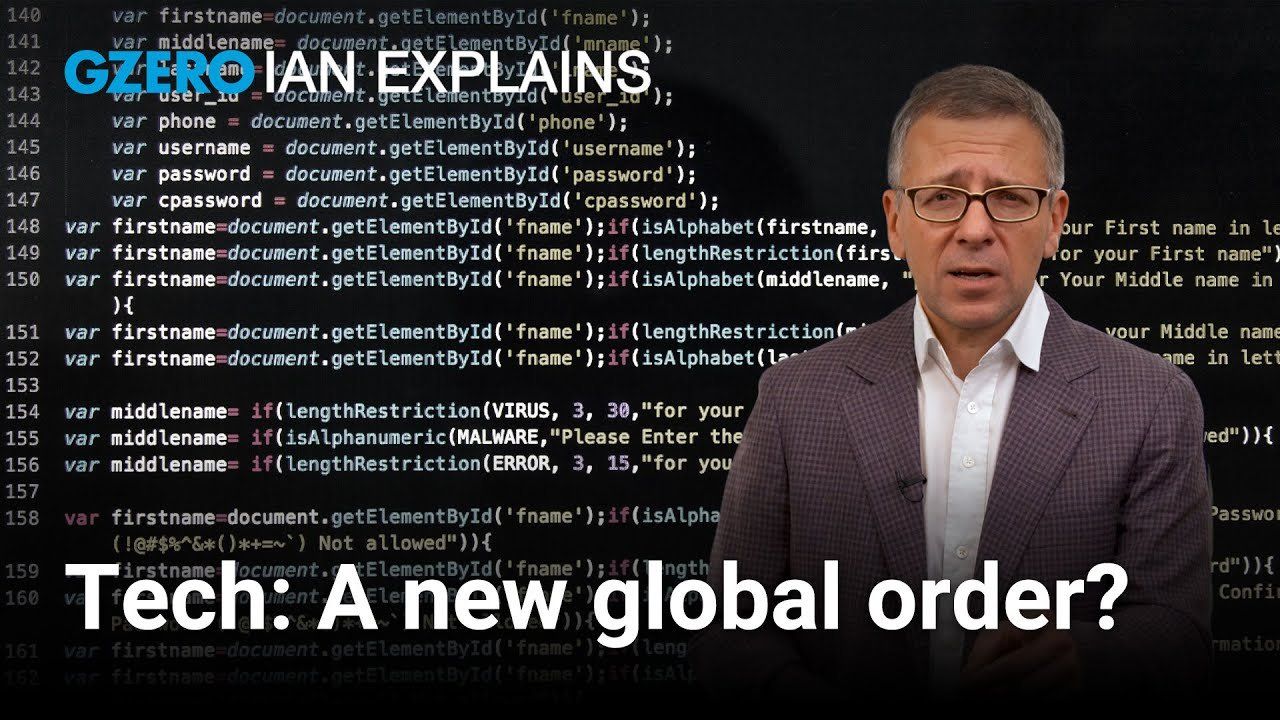Ian Explains
Ian Explains: Why big tech will rule the world

Ian Explains: Why big tech will rule the world | GZERO World

Who runs the world? It used to be an easy question to answer, but the next global super power isn’t who you think it is—not the US, not China. In fact, it’s not a country at all ... It’s technology.
On Ian Explains, Ian Bremmer breaks down the three global orders of the current geopolitical landscape.
First is the global security order, where the US is the undisputed leader. It’s the only country that can send soldiers, sailors, and military hardware to every corner of the world. Next there’s the global economic world order, which has no single leader. The US and China are too economically interdependent to couple from each other; the European Union is the world’s largest common market; Japan is a global economic power; India’s economy is growing rapidly … You get the idea.
The third global order isn’t quite here yet but it will bring unprecedented changes to our everyday lives: the digital order. As new artificial intelligence tools like ChatGPT and Midjourney hit the market, techn firms control increasingly large data sets about massive swaths of the world’s population—what we think, what we feel, how we use the internet. And social media companies can impact elections with a simple tweak of an algorithm.
Who will hold these companies to account as they release new, more advanced tools? What will they do with the massive amounts of data they collect on us and our environment? Most importantly, how will technology companies use their power?
For more on the power of Big Tech and advances in AI technology, watch the upcoming episode of GZERO World with Ian Bremmer on US public television and at gzeromedia.com/gzeroworld.
Somewhere in the Donbas region, Ukrainian soldier Artem Bondarenko says he hasn’t slept through the night in months as he defends Eastern Ukraine.
In the latest episode of Vladimir Putin and Xi Jinping's hit wellness podcast This Authoritarian Life, we learn how positive communication patterns can break negative cycles in our relationships -- especially our relationships with Iran, Syria, Venezuela, and Cuba. #PUPPETREGIME
Israel indirectly warned Lebanon that it would strike its northern neighbor hard if the Iran-backed militia group Hezbollah gets involved in any future US-Iran conflict, two Lebanese officials told Reuters.